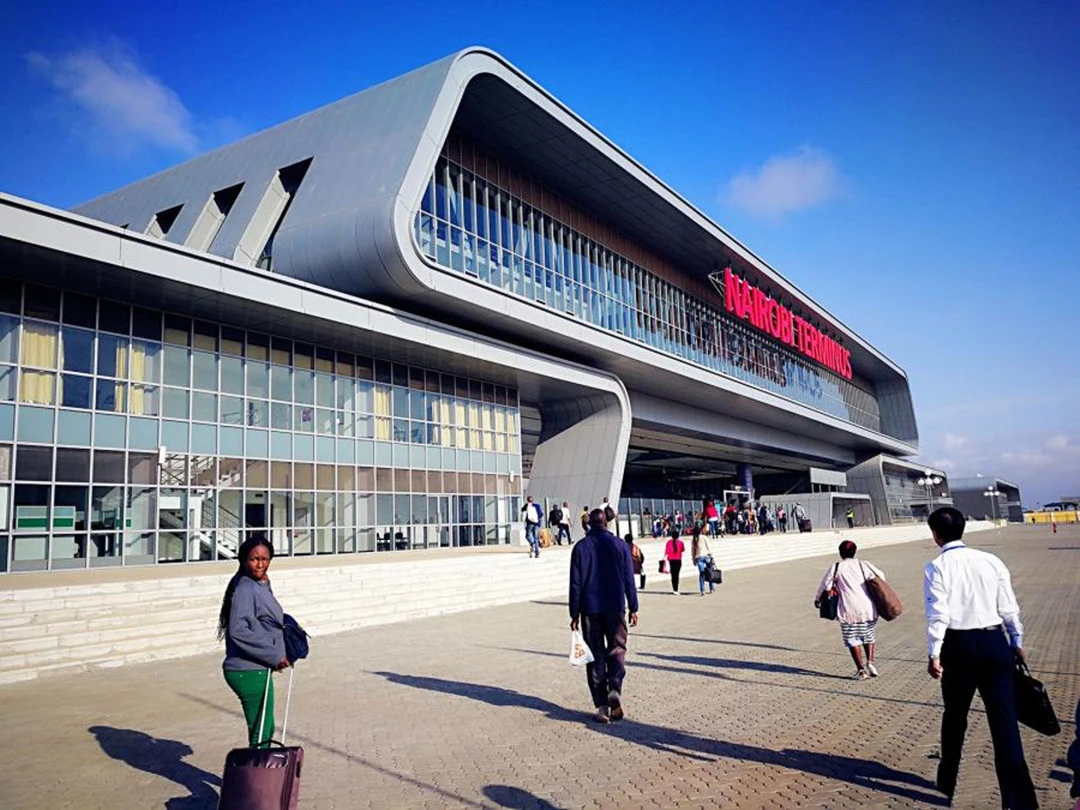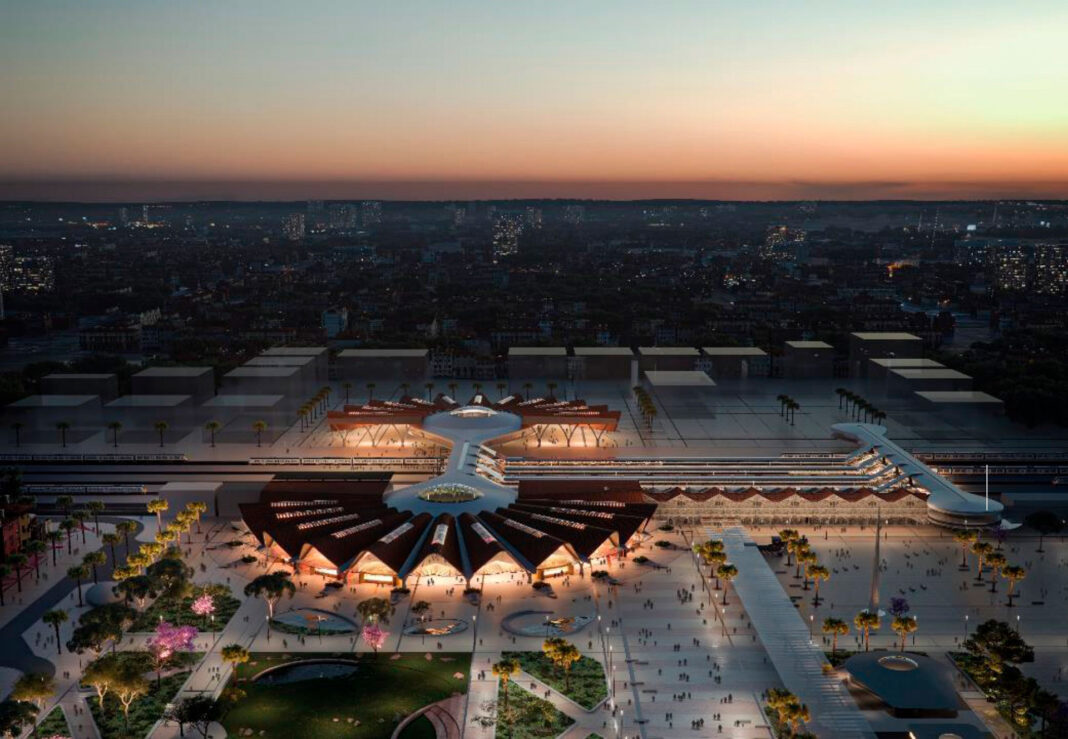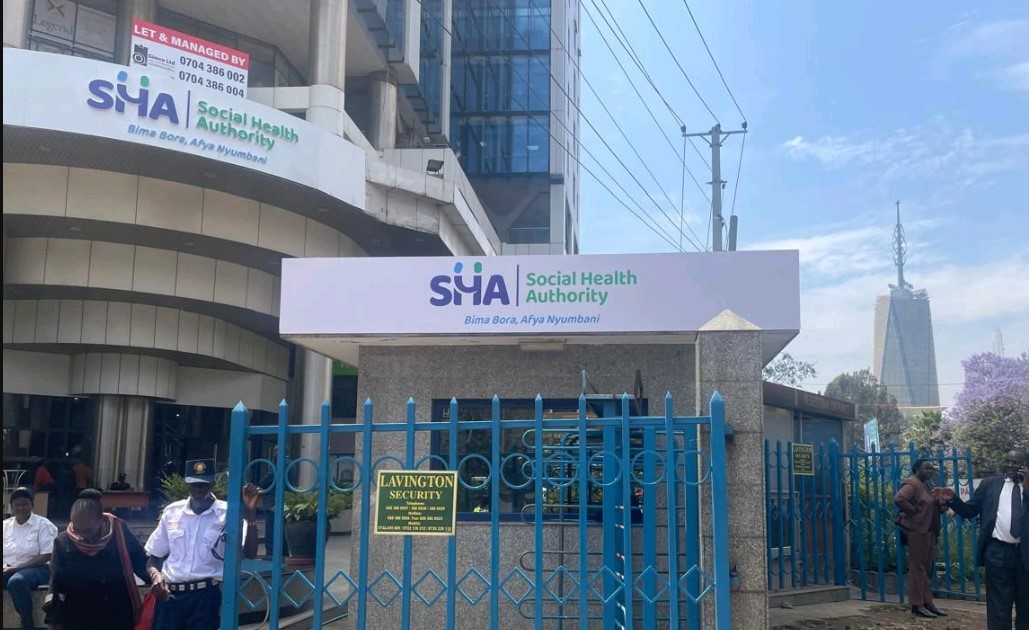A powerful investment team from the United Arab Emirates has pitched camp in Kenya to explore opportunities in the ambitious Ksh28 billion Nairobi Railway City Project. The consortium, known as DECAEXEC, held high-level talks with the Kenya Railways Corporation (KRC) to discuss potential strategic and institutional partnerships for the mega urban transformation venture.
The Nairobi Railway City Project, already approved by the Cabinet, is one of Kenya’s flagship developments aimed at modernizing Nairobi’s transport and urban infrastructure. If the talks bear fruit, the UAE consortium could play a major role in financing and developing critical components of the project, including the Meetings, Incentives, Conferences and Exhibitions (MICE) precinct.

Nairobi Railway City Project Set to Transform Capital’s Transport and Economy
According to Kenya Railways, the project has been divided into six distinct zones, each serving a unique function within the 425-acre redevelopment area between Haile Selassie Avenue, Uhuru Highway, Landhies Road, and Bunyala Road. The new Nairobi Central Station will anchor the development, transforming the heart of the city into a modern multimodal hub.
The DECAEXEC Consortium presented a phased and sustainable investment plan focusing on the MICE zone, which covers about 69 acres along Uhuru Highway. This section is envisioned to host world-class conference facilities, hotels, and exhibition centers—turning Nairobi into a global destination for business tourism.
Officials say the MICE precinct will be supported by a robust transport network that integrates commuter rail, bus terminals, and non-motorized transport options. The goal is to create a development that balances economic growth with social inclusion and environmental sustainability.
Modern Central Station to Anchor Nairobi Railway City Project
At the heart of the development will be the new Nairobi Central Station, designed to be a modern, low-carbon facility offering seamless commuter experiences. The two-storey structure will feature a retail-filled ground floor with restaurants and shops, while the first floor will host ticketing halls and passenger access points to railway platforms.
A grand public square will front the building, serving as a social and cultural meeting space for Nairobi residents and visitors. The design follows the Nairobi Commuter Rail Master Plan and NIUPLAN, which aim to increase the city’s public transport efficiency.
When complete, the station will accommodate 30,000 passengers per peak hour and eventually serve 1.5 million commuters daily across Nairobi’s growing metropolitan area. This shift is expected to significantly reduce traffic congestion, cut emissions, and improve connectivity between key business districts and residential areas.
Economic Growth and Job Creation at the Heart of the Vision
Beyond infrastructure, the Nairobi Railway City Project is expected to drive major economic gains. Kenya Railways estimates that over 5,000 direct jobs will be created during construction, with thousands more arising from businesses that will occupy new retail and commercial spaces.
Officials describe the development as “a catalytic project” that will elevate Nairobi’s profile as a regional hub for trade, logistics, and tourism. It will also support small enterprises by providing affordable retail and office spaces within the city’s new economic corridors.
The project also promises an inclusive urban environment, blending affordable housing, green parks, and safe pedestrian spaces. Sustainability is a key focus, with the designs emphasizing low-carbon technologies, rainwater harvesting, and renewable energy integration.
UAE Investment Interest Signals Strong Confidence in Kenya
The interest from the DECAEXEC Consortium underscores growing international confidence in Kenya’s infrastructure agenda. The UAE delegation’s visit marks one of the most significant foreign investment discussions in the project’s recent history.
According to KRC, the consortium expressed strong interest in participating through both direct financing and long-term operational partnerships. The discussions focused on institutional investment models that could bring sustainable capital inflows without overburdening the national budget.
Experts say the entry of Gulf investors could accelerate the project’s completion, which was initially expected by 2027. The UAE has previously invested in major urban and transport projects across Africa, and its involvement could enhance Kenya’s access to global expertise and funding.
A New Urban Future for Nairobi
The Nairobi Railway City Project represents more than a transport upgrade—it is a reimagination of Nairobi’s identity. Once complete, it will redefine the skyline south of the Central Business District, linking the city to Jomo Kenyatta International Airport just 11 kilometers away.
The relocation of the Central Bus Station and the integration of new rail and road networks will create a seamless flow of movement for commuters and visitors. The development will also include business districts, entertainment zones, green spaces, and residential areas designed for safety, accessibility, and cultural authenticity.
Kenya Railways says the ultimate goal is to deliver “a safe, inclusive, climate-resilient, and authentically Kenyan environment.” With the UAE consortium’s potential investment, that vision could soon move closer to reality.


